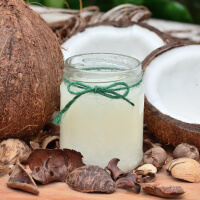

Description
Zinc is an essential mineral that has a vital role in your body. It's known for its benefits on the immune system. It is found in some foods such as seafood, nuts and you can also consume it as a supplement.

Possible Benefits
- May improve your immunity and reduce the risk of infection
- May improve wound healing
- May protect you against cardiovascular events
- May improve your memory and mental health
- May decrease the risk of osteoporosis
- Treats common cold and diarrhea
- May decrease the frequency of eye diseases

Required Equipment
Seafood, nuts, or supplement.

How to Do It
Eat seafood and nuts regularly to obtain this nutrient. Zinc is available as tablets or capsules in many formulations. The formulation of Zinc gluconate is widely available and cost-effective so it could be a good option for you.
According to the Office of Dietary Supplements (ODS), National Institutes of Health, the recommended daily intake (RDI) is 11 mg for adult men and 8 mg for adult women. Pregnant women should consume 11 mg per day, and if breastfeeding should consume 12 mg per day.

Why it works
- Zinc maintains the stability of many vital enzymes and proteins that play a major role in our bodies.
- Zinc is necessary for the immune system's ability to fight viruses and bacteria that could cause disease.
- It plays an important role in purifying the arteries, thus decreasing the risk of cardiovascular disease.

Time Commitment
5-10 minutes

Suggested Frequency
3 times per week

Time of Day
One hour before or two hours after meals.

Possible Side Effects
Zinc may cause nausea, vomiting, diarrhea, metallic taste.
In high doses, it may produce kidney and stomach damage.

Tips
- To avoid zinc toxicity symptoms, it’s better not to exceed the recommended daily intake.
- Toxicity symptoms could be flu-like symptoms, such as fever, coughing, headache, and fatigue.
- Zinc can also interfere with your absorption of copper, so it may lead to a deficiency in this mineral over time.
- Meat and chicken are excellent sources of dietary zinc.









